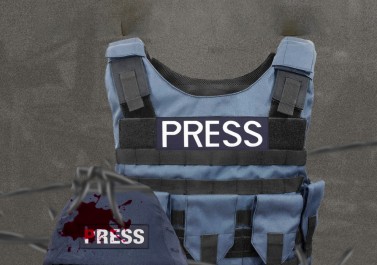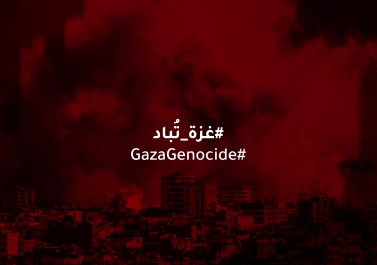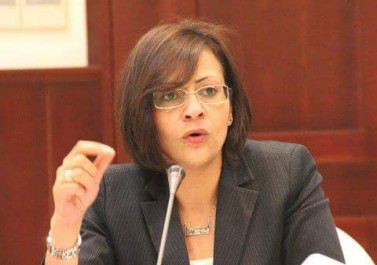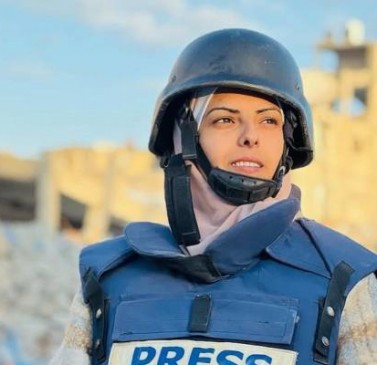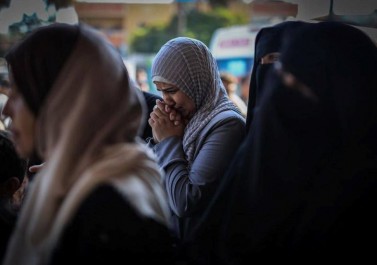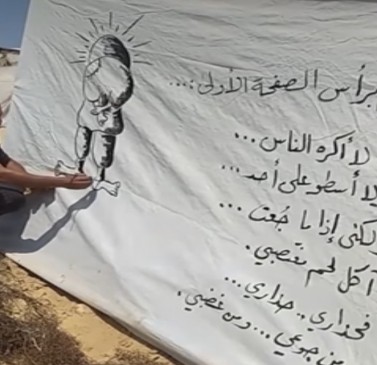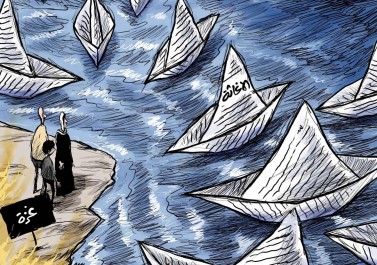:Gaza- Nawa Network- Filastiniyat
With trembling hands, Islam Hajaj, 36, clutches the death certificate of her two-month-old daughter. Tears fall as she whispers: "She died of hunger. Of malnutrition. While the world throws away food without a thought."
In Gaza, childhood has been reduced to survival. The children here are not soldiers — they are infants, students, dreamers — caught in a war they never chose.
Islam lost her baby because there was no formula, no food, no warmth.
“I can’t bear to lose my second daughter the same way,” she says, her voice breaking. Inside a worn-out tent, she points to her only surviving child — a fragile baby, too weak to cry.
“A child this age needs milk, fruit, vegetables. But there is nothing. We beg strangers for flour just to make a piece of bread. Sometimes we go weeks without it.”
The mother continues, her words soaked in anguish: "We spent nine days at Asdeeqa Al-Mareed Hospital due to severe malnutrition. She’s skin and bones now. She’s wasting away."
The bitter cold, the hunger, the silence of the world — all have conspired to steal childhood from Gaza’s littlest ones.
A Tomato Is a Dream
“Other children dream of becoming doctors or pilots,” Islam says softly. “My daughter dreams of eating chicken. Even one bite of tomato seems impossible now.”
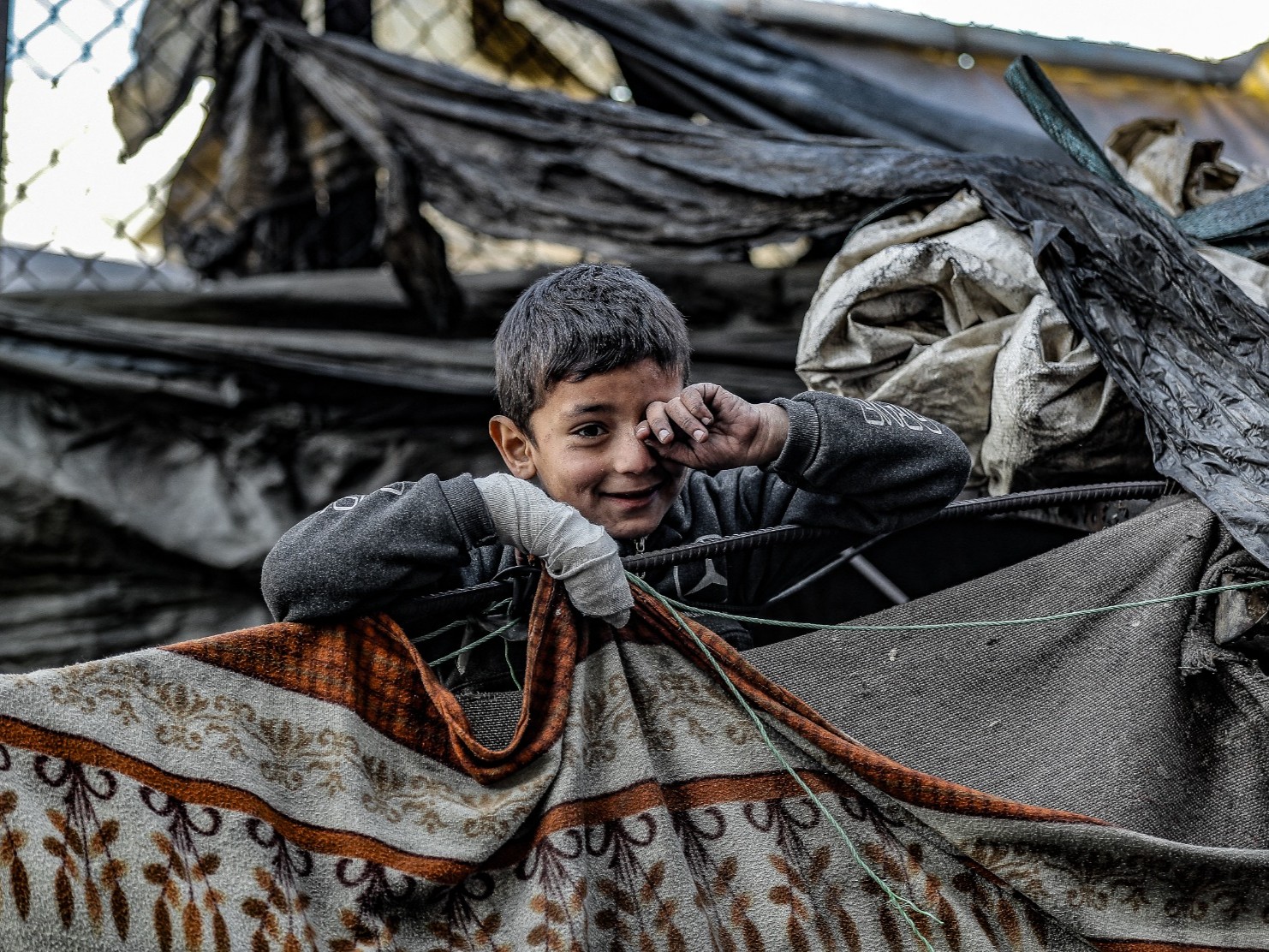
June 4 marks the International Day of Innocent Children Victims of Aggression, as declared by the UN — a day meant to raise awareness of the violence children face in conflict zones.
Yet in Gaza, the violence isn’t just bombs. It’s starvation. It’s dehydration. It’s the complete collapse of life’s most basic needs.
Borders Closed, Lives Cut Short
Since the war began, more than 16,500 children have been killed in Gaza, including 916 under the age of one, according to the Ministry of Health. UNICEF estimates over 50,000 children have been killed or injured.
Blockaded borders have choked off food, medicine, and humanitarian aid. Hospitals lie in ruins. Those that remain are overwhelmed, lacking the simplest resources — beds, bandages, and hope.
A Knife Instead of Anesthesia
Seventeen-year-old Ahed Bessiso lived just minutes from Al-Shifa Hospital. But her home was surrounded, trapped in a military siege.
When an Israeli shell shattered her leg, her uncle faced an impossible decision:
“It was either amputate with what I had, or watch her bleed to death,” he said.
He placed her on a kitchen table, recited verses from the Qur’an to calm her, and amputated her leg with a kitchen knife — no anesthesia, only gauze and pain.
One Million Children in Need of Mental Health Support
UNICEF warns that over 17,000 children are now in urgent need of medical treatment. Yet Israel continues to block medical supplies at the borders.
The trauma is unbearable. Psychologist Laila Ali explains that more than one million children in Gaza now need urgent psychological support.
شبكة نوى، فلسطينيات: UNICEF warns that over 17,000 children are now in urgent need of medical treatment. Yet Israel continues to block medical supplies at the borders.
Symptoms like bedwetting, seizures, emotional numbness, and night terrors are widespread.
“This generation may never recover,” she warns.
“Children are constantly surrounded by death, bombing, and destruction. What kind of future can they imagine?”
"?Why Didn’t I Die With My Family"
Little Amina Ahmad Al-Khatib was the sole survivor after her family was killed in an Israeli strike on Al-Maamdani Hospital — a place declared a “safe zone.”
Now, she repeats the same heartbreaking words:
"I wish I had died with my family. I wish I hadn’t survived to see this."
Her voice joins thousands of others — children who have lost everything. Home. Safety. Family.
"Listen to Them"
Laila Ali urges families to hold their children close. “Don’t dismiss their fears. Don’t ignore their questions like: .Will we all die?' or 'Will I be the only one left'
Comfort them. Let them know this war will end. Remind them they are loved, and that God is with them.”










